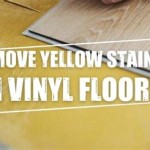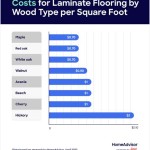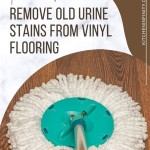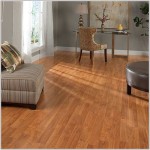Types of Flooring Materials for Offices
Choosing the right flooring for an office is an important decision that can significantly impact the overall aesthetics, functionality, and comfort of the workspace. Office flooring must be durable, easy to maintain, and aesthetically pleasing, while also accommodating the specific needs of the workplace, such as foot traffic, noise levels, and comfort. With a wide variety of flooring materials available, it's crucial to carefully consider the pros and cons of each option to make an informed choice.
Hardwood Flooring
Hardwood flooring offers a classic, elegant look that can enhance the ambiance of any office. Natural wood provides warmth and character, creating a welcoming and sophisticated atmosphere. Hardwood floors are also durable, scratch-resistant, and can withstand heavy foot traffic. However, they can be relatively expensive to install and require regular maintenance, including refinishing to maintain their appearance. Additionally, hardwood flooring can be noisy, especially in areas with high foot traffic.
Several types of hardwood flooring are commonly used in offices, such as oak, maple, cherry, and walnut. Each wood species has unique properties and aesthetic appeal. For instance, oak is known for its durability and classic look, while maple is known for its hardness and natural beauty. When considering hardwood flooring, it's essential to choose a finish that complements the office's overall design and aligns with the company's brand identity.
Carpet Flooring
Carpet flooring is a popular choice for offices due to its comfort, noise reduction, and versatility. Soft underfoot, carpets offer a cozy and comfortable atmosphere, which is particularly beneficial for employees who spend long hours at their desks. Carpet also helps absorb sound, reducing noise levels and improving productivity. The wide range of colors, patterns, and textures available allows for customization, making it easy to create a unique and welcoming workspace.
However, carpet flooring requires regular cleaning and maintenance to prevent dirt buildup and allergens. It is also susceptible to staining and may not be the best choice for high-traffic areas. Furthermore, carpet fibers can trap dust and allergens, which can be problematic for individuals with sensitivities. Carpet tiles are an alternative option that can be easily replaced if damaged or stained.
Luxury Vinyl Tile (LVT)
Luxury vinyl tile (LVT) has gained popularity in recent years due to its versatility, durability, and affordability. LVT offers a wide range of designs and styles that can mimic the look of hardwood, stone, or tile, creating a sophisticated and modern aesthetic. This makes it an excellent choice for offices seeking a high-end look without the high cost of natural materials. LVT flooring is also highly durable and resistant to scratches, dents, and moisture, making it suitable for high-traffic areas.
LVT is relatively easy to install and maintain, requiring only sweeping and occasional mopping. It is also a good choice for offices concerned about sustainability, as LVT flooring is typically made from recycled materials. However, LVT flooring can be slippery when wet and may not be as sound-absorbing as carpet flooring.
Ceramic Tile Flooring
Ceramic tile flooring is a durable and versatile option that offers a wide range of styles and colors. Ceramic tiles are particularly well-suited for high-traffic areas, as they are resistant to scratches, dents, and moisture. They are also easy to clean and maintain, making them a practical choice for busy offices. Ceramic tile is available in various styles, including traditional, modern, and contemporary, allowing for a wide range of design possibilities.
However, ceramic tile can be cold and hard underfoot, which can be uncomfortable for employees who spend long hours standing. It can also be slippery when wet. The installation process of ceramic tile can be time-consuming and may require specialized skills, which can increase the overall cost of this flooring option.
Epoxy Flooring
Epoxy flooring is a highly durable and versatile option that is often used in industrial and commercial settings. Epoxy floors are seamless, resistant to chemicals, and easy to clean. They are also resistant to abrasion, impact, and moisture, making them an ideal choice for high-traffic areas. Epoxy flooring is available in a wide range of colors and finishes, allowing for customization to match the office's design aesthetic.
While epoxy flooring is highly durable and low-maintenance, it can be expensive to install. Epoxy flooring can also be difficult to repair if damaged, and may require specialized equipment and expertise.

Best Types Of Office Flooring Materials Precision Services

Types Of Commercial Flooring What S Best For My Space

Types Of Flooring The Complete Guide With Material Amp Installation

Best Flooring Types For Each Room Of The House Decorilla Interior Design

Durable Flooring Built For Business The Home Depot

Choosing The Right Type Of Office Flooring Singapore Laminate

The Pros And Cons Of Diffe Flooring Materials

Office Flooring Selection Guide Color Material Design Types Features

Flooring Types For Your Home Or Kitchen 2024 Urban Customs

Diffe Types Of Flooring Materials By Amelia White Wood
Related Posts








